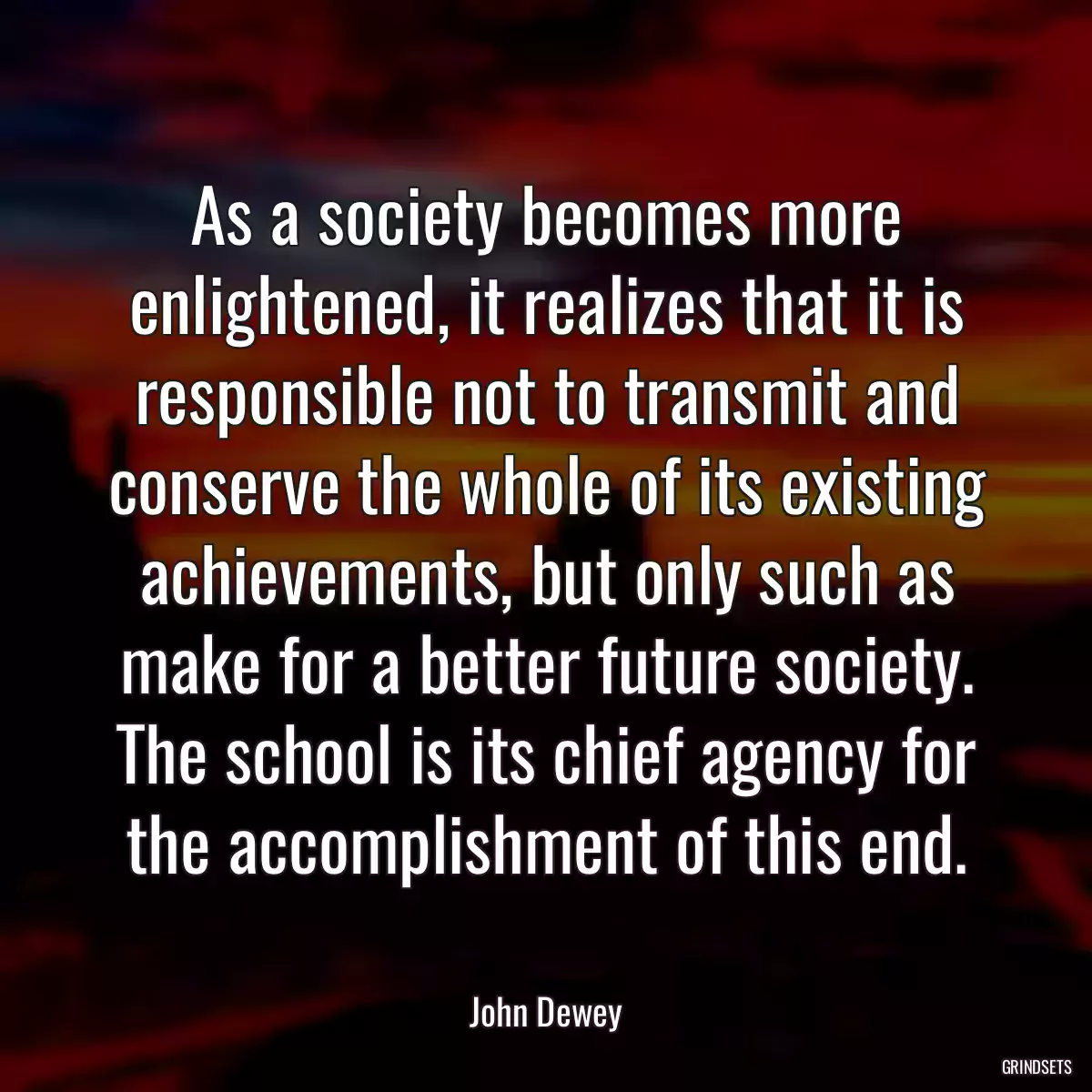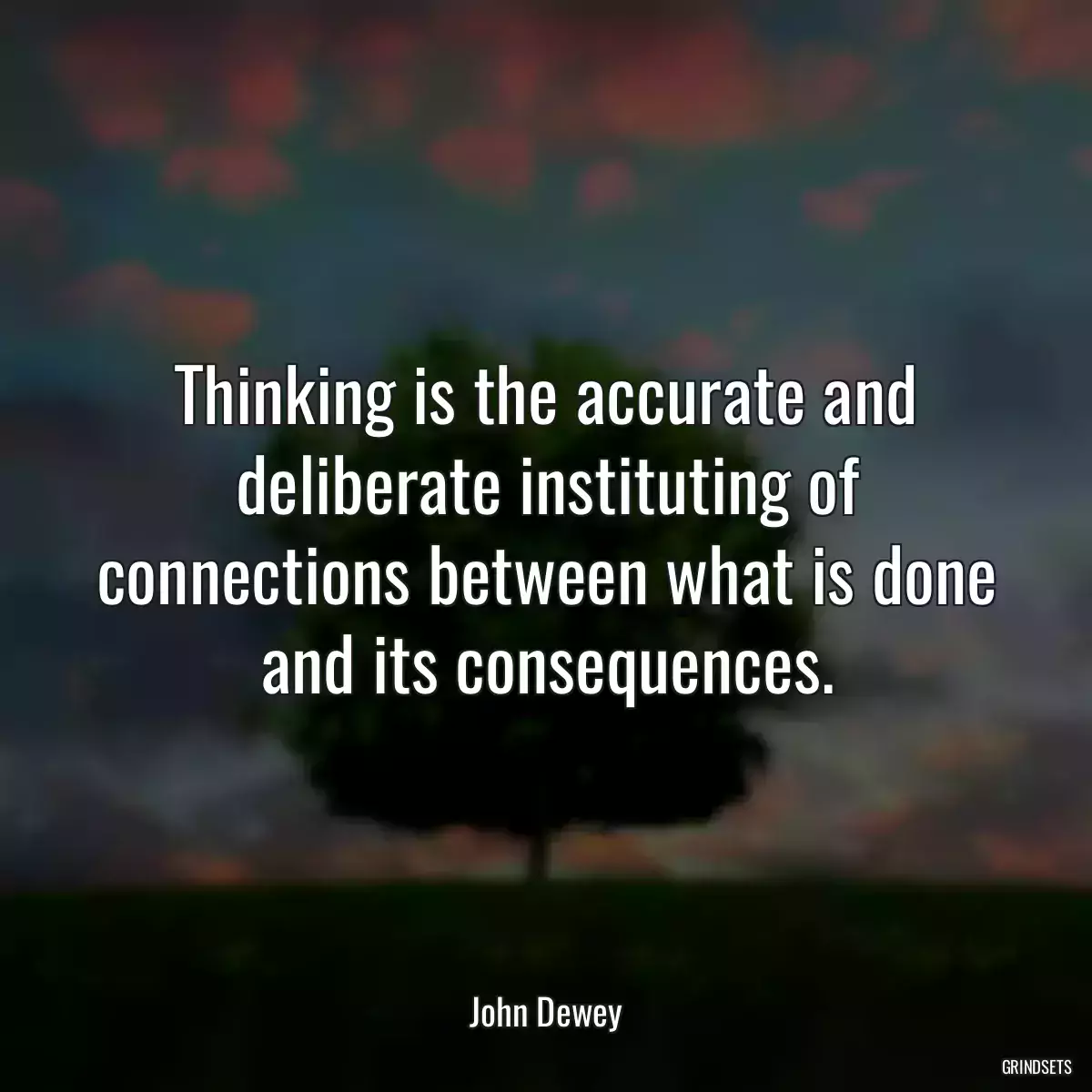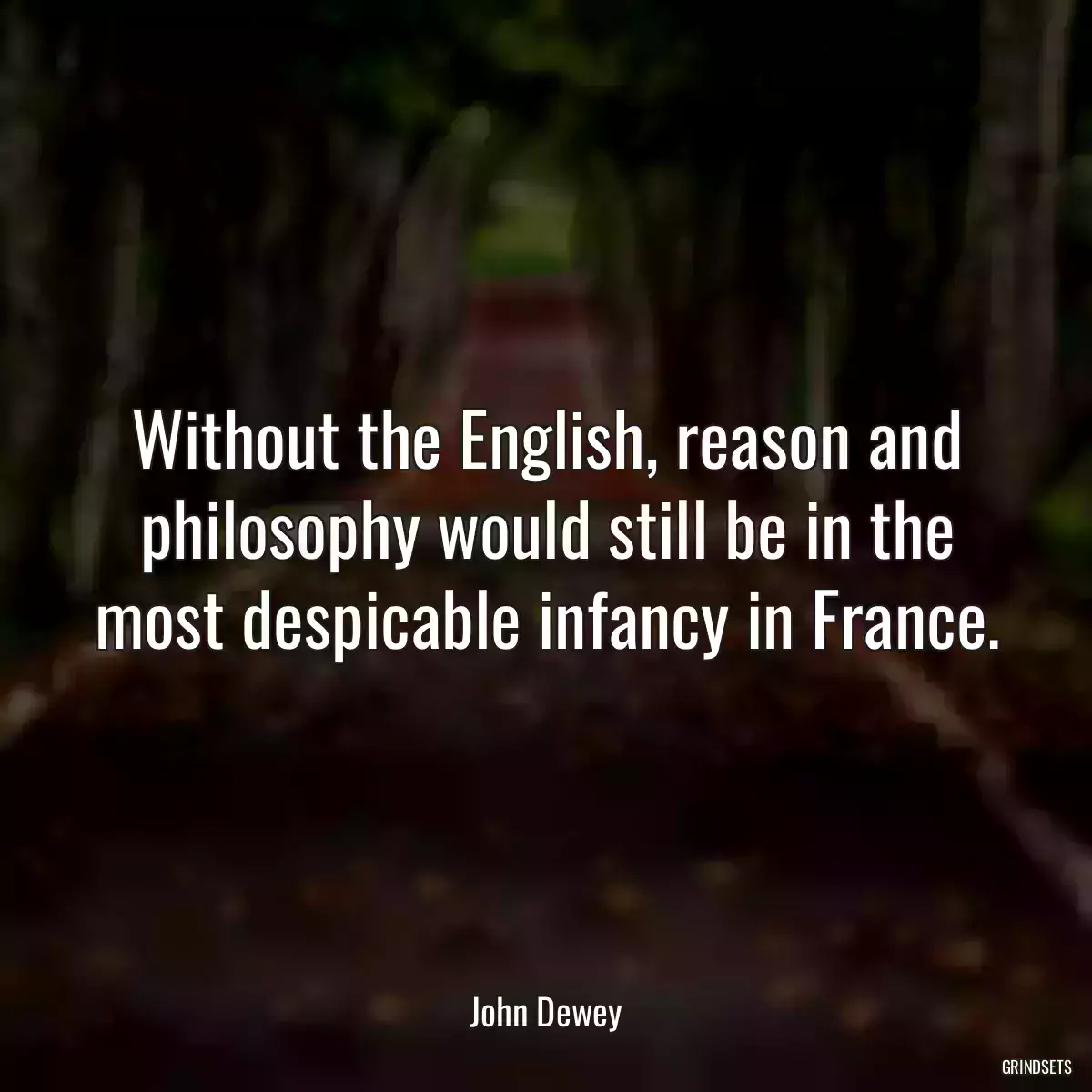
Quotes John Dewey - page 3
Find dozens of John Dewey with images to copy and share.

As formal teaching and training grow in extent, there is the danger of creating an undesirable split between the experience gained in more direct associations and what is acquired in school. This danger was never greater than at the present time, on account of the rapid growth in the last few centuries of knowledge and technical modes of skill.
A being connected with other beings cannot perform his own activities without taking the activities of others into account. For they are the indispensable conditions of the realization of his tendencies. When he moves he stirs them and reciprocally.
Every one has experienced how learning an appropriate name for what was dim and vague cleared up and crystallized the whole matter. Some meaning seems distinct almost within reach, but is elusive; it refuses to condense into definite form; the attaching of a word somehow (just how, it is almost impossible to say) puts limits around the meaning, draws it out from the void, makes it stand out as an entity on its own account.
You may also like
Communication of science as subject-matter has so far outrun in education the construction of a scientific habit of mind that to some extent the natural common sense of mankind has been interfered with to its detriment.
No government by experts in which the masses do not have the chance to inform the experts as to their needs can be anything but an oligarchy managed in the interest of the few. And the enlightenment must proceed in ways which force the administrative specialists to take account of the needs. The world has suffered more from leaders and authorities than from the masses. The essential need ... is the improvement of the methods and conditions of debate, discussion and persuasion. That is the problem of the public.
There is more than a verbal tie between the words common, community, and communication.... Try the experiment of communicating, with fullness and accuracy, some experience to another, especially if it be somewhat complicated, and you will find your own attitude toward your experience changing.
It science involves an intelligent and persistent endeavor to revise current beliefs so as to weed out what is erroneous, to add to their accuracy, and, above all, to give them such shape that the dependencies of the various facts upon one another may be as obvious as possible.
Not only does social life demand teaching and learning for its own permanence, but the very process of living together educates. It enlarges and enlightens experience; it stimulates and enriches imagination; it creates responsibility for accuracy and vividness of statement and thought.

We have three approaches at our disposal: the observation of nature, reflection, and experimentation. Observation serves to assemble the data, reflection to synthesise them and experimentation to test the results of the synthesis. The observation of nature must be assiduous, just as reflection must be profound, and experimentation accurate. These three approaches are rarely found together, which explains why creative geniuses are so rare.
An empirical philosophy is in any case a kind of intellectual disrobing. We cannot permanently divest ourselves of the intellectual habits we take on and wear when we assimilate the culture of our own time and place. But intelligent furthering of culture demands that we take some of them off, that we inspect them critically to see what they are made of and what wearing them does to us. We cannot achieve recovery of primitive naïveté. But there is attainable a cultivated naïveté of eye, ear and thought.
Historically the great movements for human liberation have always been movements to change institutions and not to preserve them intact. It follows from what has been said that there have been movements to bring about a changed distribution of power to do - and power to think and to express thought is a power to do- so that there would be a more balanced, a more equal, even, and equitable system of human liberties.
For in spite of itself any movement that thinks and acts in terms of an ‘ism becomes so involved in reaction against other ‘isms that it is unwittingly controlled by them. For it then forms its principles by reaction against them instead of by a comprehensive, constructive survey of actual needs, problems, and possibilities.
The only freedom that is of enduring importance is the freedom of intelligence, that is to say, freedom of observation and of judgment, exercised in behalf of purposes that are intrinsically worth while. The commonest mistake made about freedom is, I think, to identify it with freedom of movement, or, with the external or physical side of activity.
Even in a savage tribe, the achievements of adults are far beyond what the immature members would be capable of if left to themselves. With the growth of civilization, the gap between the original capacities of the immature and the standards and customs of the elders increases.
The young of human beings compare so poorly in original efficiency with the young of many of the lower animals, that even the powers needed for physical sustentation have to be acquired under tuition. How much more, then, is this the case with respect to all the technological, artistic, scientific, and moral achievements of humanity!
A tribe, let us say, is warlike. The successes for which it strives, the achievements upon which it sets store, are connected with fighting and victory.
You may also like

In England, philosophers are honoured, respected; they rise to public offices, they are buried with the kings... In France warrants are issued against them, they are persecuted, pelted with pastoral letters: Do we see that England is any the worse for it?